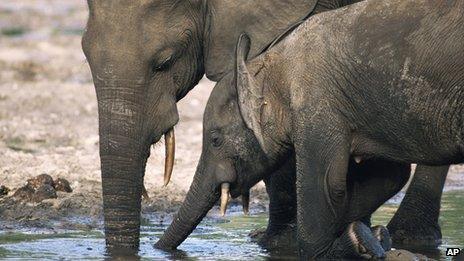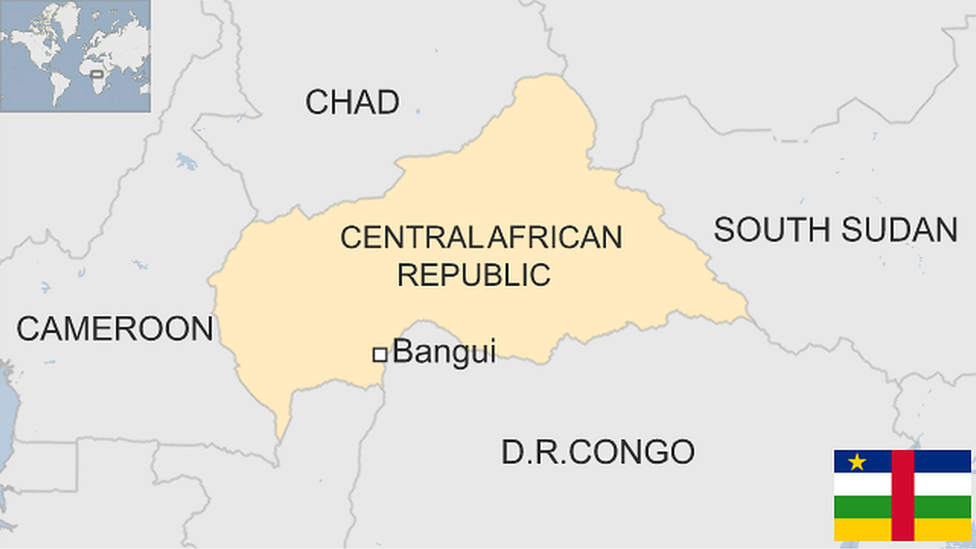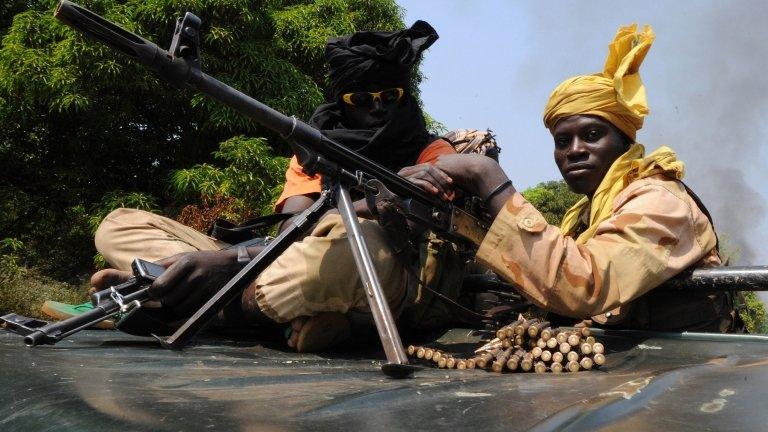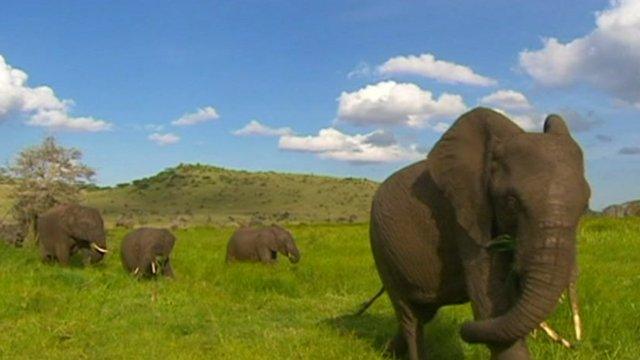Elephant poaching 'rising' in Central African Republic
- Published

Poachers are taking advantage of instability in the Central African Republic (CAR) to kill more endangered elephants, wildlife campaigners say.
Eight organisations have called for action following reports of elephant meat being sold openly in markets.
Armed rebels seized power and ousted President Francois Bozize in March after a peace deal collapsed.
Wildlife park staff say the security situation is preventing them from searching forests for animal carcasses.
The World Wildlife Fund (WWF) said its offices in the protected Dzanga-Sangha area had been looted three times in the past month and it had pulled out workers.
'Fearing the worst'
The UNESCO World Heritage Site has been home to an estimated 3,400 forest elephants, which are smaller than those on the African savannahs.
But a recent study, lead by the Wildlife Conservation Society (WCS), showed forest elephant numbers had decreased by 62% across Central Africa over the last 10 years.

Seleka rebels swept into the CAR capital, Bangui, after the collapse of a power-sharing deal.
The WCS met with seven other groups, including the WWF and the African Parks Network, on Friday to propose ways for governments to tackle the problem.
They said penalties should be increased and better links built with consumer countries such as China and Thailand.
It is not known how many elephants have died in the recent spate of killings, which are believed to be part of a wider surge in poaching fuelled by growing Asian demand for ivory.
"Elephant poaching is on the increase and given the fact that Central African Republic for the moment is also in dire straits we are fearing for the worst in terms of people trying to look seriously for ivory," said Bas Huijbregts, head of policy for WWF's campaign against poaching in Central Africa.
"Given the total absence of any type of law enforcement and rule of law in the area, there is elephant meat all over the place," he told the Associated Press.
Representatives from the region's governments are understood to meeting next week to discuss the proposals.
- Published22 August 2023

- Published24 March 2013

- Published31 March 2013

- Published15 January 2013
